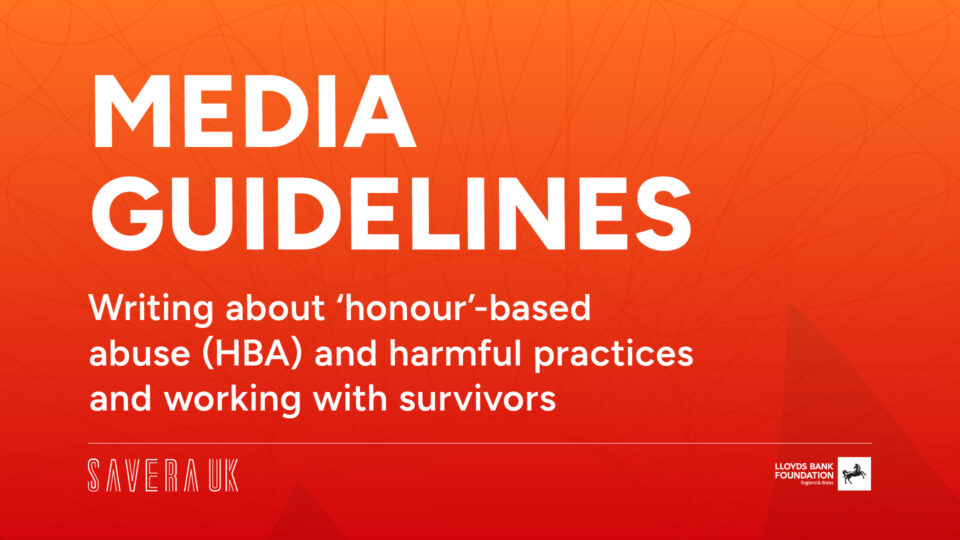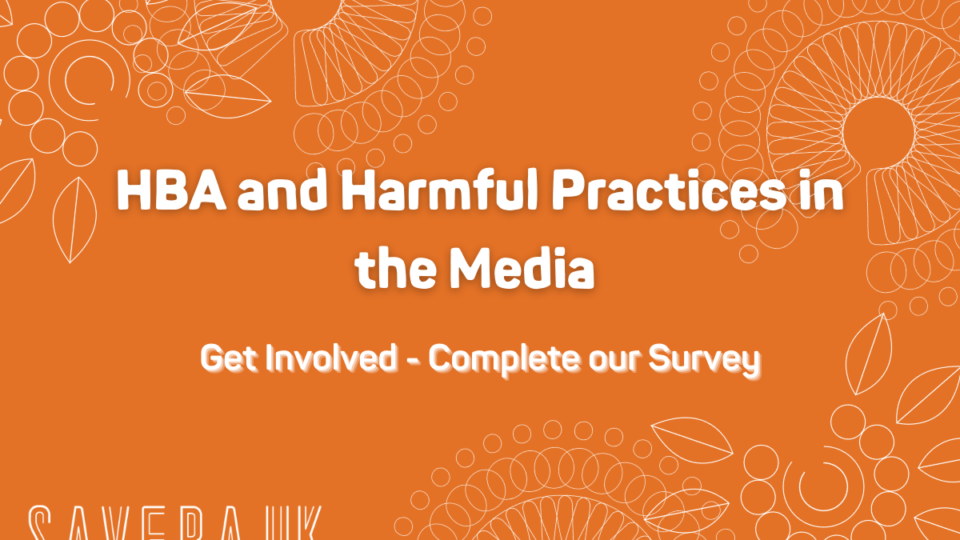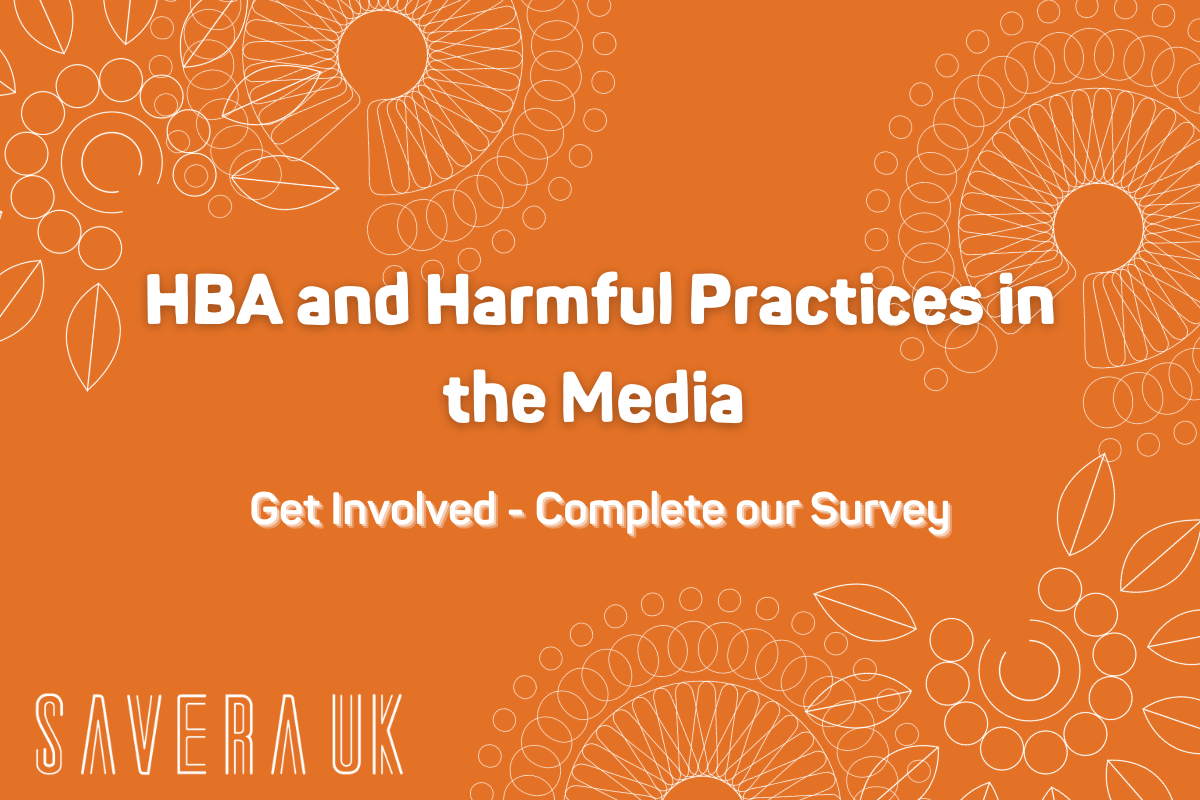Savera UK has launched media guidelines for reporting on ‘honour’-based abuse (HBA) and interviewing survivors.
The guidelines were created collaboratively by HBA survivors and frontline professionals and came following the charity’s Setting the Story Straight project, funded by Lloyds Bank Foundation for England & Wales. The project examined how HBA and harmful practices, its survivors and affected communities were represented in the media.
A survey of HBA survivors revealed that 55 percent disagreed or strongly disagreed that they saw people like them, with shared experiences of HBA and harmful practices, represented in UK media.
Eighty-two percent of survivors felt that the UK media did not do a good job of representing survivors of HBA and harmful practices, with almost two-thirds saying that it also failed to provide a good representation of these issues or affected communities.
Despite this, more than half (55 percent) of the survivors surveyed said they would agree to be interviewed by a journalist as they felt it was important to raise awareness. Factors stopping the remaining 45 percent who said they would not be interviewed included lack of trust and security.
Of those who had previously been interviewed, 60 percent said they felt their interviewer didn’t have a good understanding of HBA and harmful practices or the impact that sharing their story would have on them, with 80 percent highlighting that no aftercare, such as a follow up phone call, or information on services that can provide support, was put in place for them after their interview.
Speaking during the project, Savera UK Survivor Ambassador, Khatra Paterson, said: “There needs to be balance in the person’s narrative. Many times I’ve discussed the harmful practices that have occurred in western societies and amongst Caucasians, but I find that this part of my story is always ignored.
“Also, the emotional trauma they may leave the survivor in so be sensitive in the questioning, don’t ask me if I can achieve an orgasm or liken FGM to male circumcision, or do I forgive my mother.”
A separate survey of professionals working to tackle HBA and support survivors revealed that 80 percent thought that coverage of HBA and harmful practices in the UK media failed to represent the scale of the problem, and a further 65 percent stated that coverage reinforced harmful stereotypes about culturally specific abuse and affected communities.
The project also highlighted concern in the professional community around traditional reporting techniques employed by journalists, such as door knocks, using interpreters and interviewing community members, with 69 percent stating that they put individuals at greater risk of abuse or violence as a consequence of speaking to media.
Afrah Qassim, Founder and CEO of Savera UK, said: “Our project revealed that a lack of understanding amongst media professionals about ‘honour’-based abuse (HBA) and harmful practices has led to poor representation of the issues, HBA survivors and affected communities, which reinforce harmful stereotypes and even put individuals at risk.
“However, it also highlighted a desire from survivors, those at risk and those working to tackle HBA, to engage with media and tell their stories and improve awareness generally so these hidden practices can be eliminated for good.
“We know from our experience of working with the media that there is positive intent to amplify the issues and the voices of survivors. However, the complexity of HBA, which differs significantly from general forms of domestic violence and abuse, combined with pressures experienced by journalists in terms of deadlines and the ever-increasing pace of news generation, means there is sometimes a gap in the intention and eventual coverage.
“Our media guidelines are intended to help bridge that gap, allowing journalists to quickly and easily access resources to inform themselves on HBA and harmful practices like female genital mutilation (FGM) and forced marriage, as well as advice on terminology and how to work with survivors without putting them at risk or re-traumatising them. We sincerely hope they will be a useful resource and that will allow media, survivors, and professionals to better communicate the issues of HBA.”
Rachel Cain, Public Affairs and National Programmes Officer for the Lloyds Bank Foundation for England & Wales, added: “The media plays a powerful role in shaping public opinion which can help to reduce harmful practices like ‘honour’-based abuse and genital mutilation for good.
“As Savera UK have shown, there has been minimal or harmful reporting on these practices, but survivors want to have their voices heard. These guidelines are a really important resource that journalists can use to ensure that they are amplifying the voices of survivors in a responsible way and we’re proud to have supported Savera UK to develop them.”
The media guidelines will be an evolving resource and Savera UK welcomes any input from journalists as to what further resources would be useful when reporting on HBA and harmful practices.
The media guidelines can be accessed here: https://www.saverauk.co.uk/hba-harmful-practice-media-guidelines/



